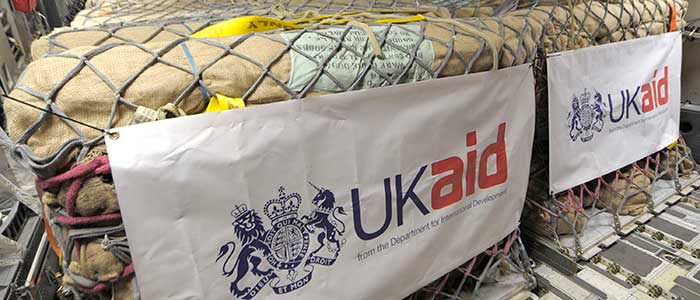MPs on the Joint Committee on National Security Strategy, who scrutinised the £1bn ($1.3bn) Conflict, Stability and Security Fund (CSSF), said the government had provided them with so little information they were unable to draw conclusions about its performance.
Meanwhile, the UK’s aid watchdog, the Independent Commission for Aid Impact, said there were “serious risks” that the Prosperity Fund would be unable to spend its £1.3bn ($1.6bn) budget effectively, and that information available about its work was too limited.
Both watchdogs said the funds had potential, with the Prosperity Fund marking a new, “ambitious” direction for UK aid and the CSSF providing funding over multiple years, enabling more flexible support.
MPs said, however, that the CSSF’s objectives, operations and achievements since its creation in 2015 were “opaque” and that the fund lacked any clear line of accountability.
The CSSF was created to support efforts to prevent conflict, stabilise insecure countries and regions and respond to international crises, but there is still no information available about its budget, suppliers, management process or ministerial responsibility.
Margaret Beckett, chair of the committee, said it was “impossible to tell” whether the CSSF was having its intended effects, with the government unwilling to provide information even for the purposes of parliamentary scrutiny.
“There is no central source of information to explain how the fund works,” she explained. “There are no published criteria on which programmes and projects are funded. There are no published measures of the impact of CSSF-derived activity.
“And who has management? No single minister is responsible, or accountable.”
Beckett urged the government to increase transparency in the CSSF as a priority and to appoint a single cabinet minister to be held accountable for the fund before a “lack of collective responsibility” degenerates into “no responsibility at all”.
A spokeswoman for the UK's Foreign and Commonwealth Office said that the government would consider this suggestion, "alongside other options", and that an annual report into the CSSF will be published on the UK government website.
ICAI also said that the Prosperity Fund, also set up in 2015, had also failed to operate in a fully open manner, despite government commitments to transparency.
“None of its strategy documents have been published, and there has been limited information published as to how it will work beyond the initial announcement of its establishment,” the watchdog’s report said.
Gillian Fawcett, head of governments faculty at CIPFA, said that for the fund to be successful there must be robust and well managed governance arrangements in place.
"How the funds are allocated needs to be transparent, with clear accountability and be open to scrutiny. It is crucial that the taxpayer receives value for money for funds going abroad," she said.
ICAI warned that at current, the fund posed "serious risks" that value for money and the effective use of its £1.3bn ($1.6bn) budget would not be achieved in the five-year time period it has been given to spend its money.
It said that the processes involved needed refinement and the range of departments that could access cash from the cross-government fund would be responsible for its programmes lacked the necessary capacity.
Since last year, the UK’s £12bn aid budget is being spent by a greater number of departments, with the Prosperity Fund one of the key vehicles through which they can access aid money. ICAI said the speed at which these departments were planning to scale up their aid spending was “remarkable”.
It noted that several stakeholders had voiced concerns about the size of the difficulties in meeting the fund’s objectives in the short time period, with substantial changes needed to financial management in departments like the Foreign and Commonwealth Office in order for them to be able to process the money.
Alison Evans, ICAI’s chief commissioner, said he fund was a “complex and ambitious” initiative that had made “significant progress in a short space of time”.
“But to deliver on its aims it must continue to improve its systems and processes, particularly given the risks associated with its current speed of delivery,” she continued.
The FCO spokeswoman said the government was already implementing many of the recommendations ICAI made in its report, including on transparency.
“There is no target for spending under the Prosperity Fund and we will only support programmes where they are needed to reduce poverty, increase global prosperity and deliver value for money," she continued.
“All departments spending [the UK aid budget] will be required to put in place a clear plan to ensure that their programme design, quality assurance, approval, contracting and procurement, monitoring, reporting and evaluation processes represent international best practice.”














